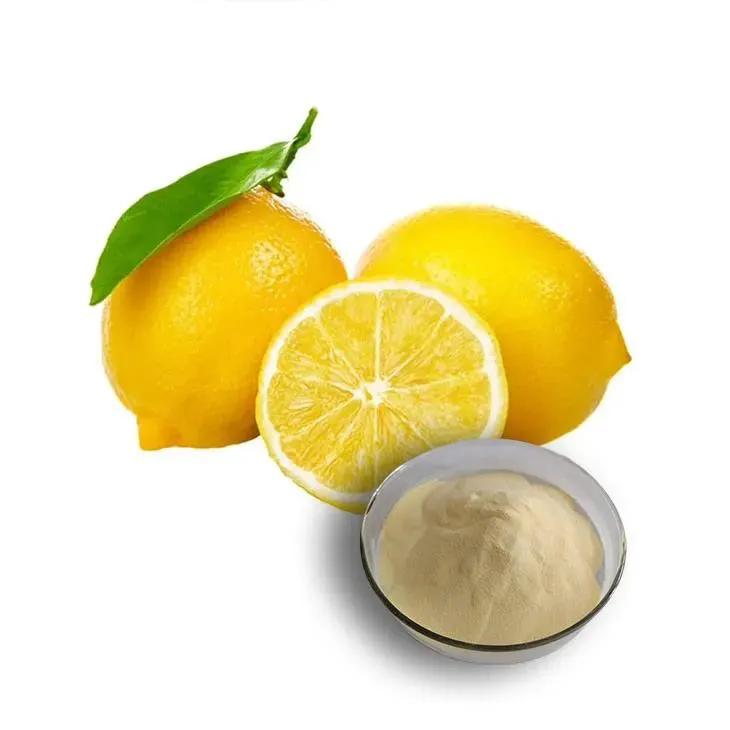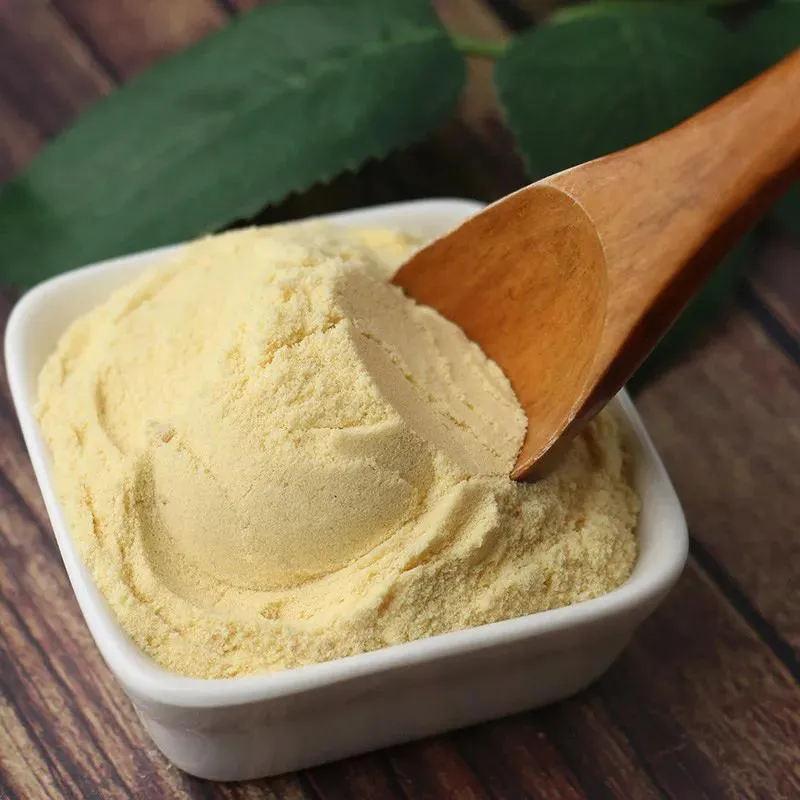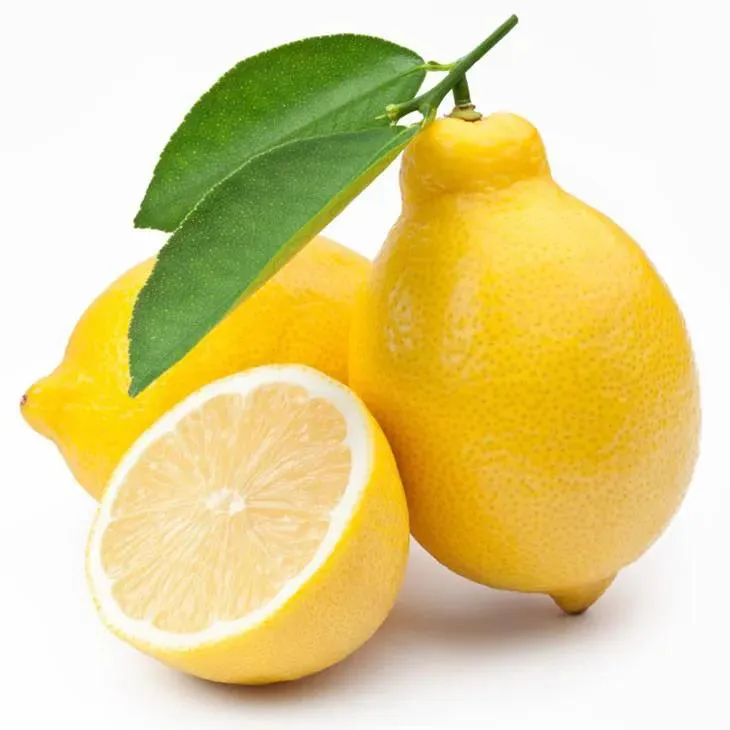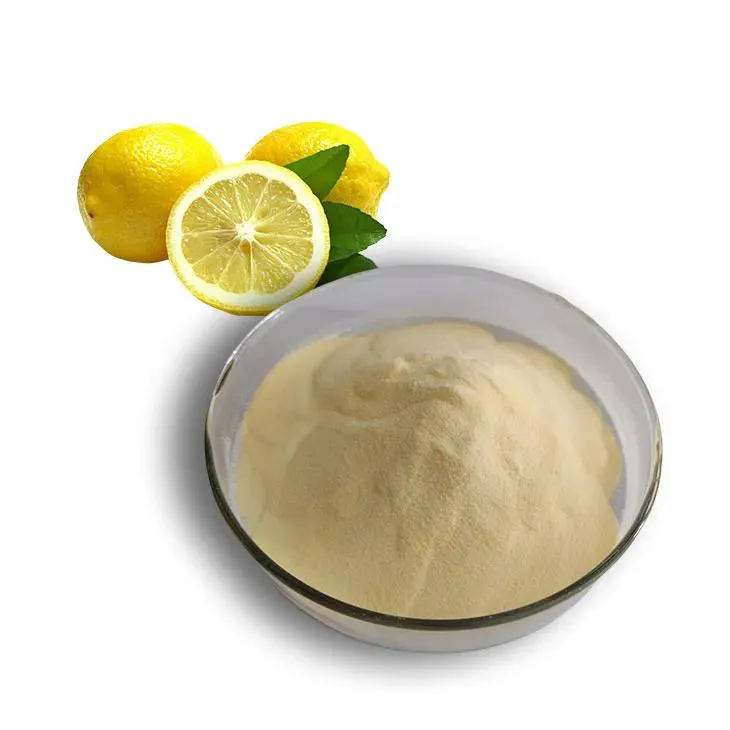- 0086-571-85302990
- sales@greenskybio.com
Lemon Juice Powder
2024-11-13

1. Introduction
Lemon Juice Powder is an increasingly popular product in the modern kitchen and food industry. It offers a host of benefits and applications that make it a valuable addition to various culinary and non - culinary uses.

2. Production Process
The production of Lemon Juice Powder begins with the selection of high - quality, fresh lemons. These lemons are carefully sourced to ensure that they are rich in flavor and nutrients.
2.1. Extraction
First, the juice is extracted from the lemons. This can be done through mechanical pressing methods. The freshly squeezed lemon juice contains all the natural components of the lemon, such as citric acid, vitamins, and flavor compounds.
2.2. Concentration
Next, the lemon juice is concentrated. This is usually achieved through evaporation techniques. By removing a significant amount of water from the juice, the concentration of the flavor and active ingredients increases.
2.3. Drying
The concentrated lemon juice is then dried. There are different drying methods available, such as spray drying or freeze - drying. Spray drying involves spraying the concentrated juice into a hot chamber, where the water is quickly evaporated, leaving behind fine powder particles. Freeze - drying, on the other hand, freezes the juice first and then removes the water through sublimation, which can preserve more of the delicate flavor and nutritional components.
3. Nutritional Properties
Despite being in powder form, Lemon Juice Powder retains many of the nutritional benefits of fresh lemon juice.
3.1. Vitamin C
One of the most significant nutrients in lemon juice powder is vitamin C. Vitamin C is an antioxidant that plays a crucial role in maintaining a healthy immune system, promoting collagen synthesis, and protecting cells from oxidative damage. A regular intake of lemon juice powder can contribute to meeting the daily requirement of vitamin C
3.2. Minerals
Lemon juice powder also contains minerals such as potassium. Potassium is essential for maintaining proper heart function, regulating blood pressure, and ensuring normal muscle and nerve function.
3.3. Flavonoids
Flavonoids are another group of compounds present in lemon juice powder. These have antioxidant and anti - inflammatory properties. They may help in reducing the risk of chronic diseases such as heart disease and cancer.
4. Culinary Uses
Lemon juice powder is highly versatile in the kitchen.
4.1. Cooking
- It can be used to season savory dishes. For example, it can be added to marinades for meats or fish. The tangy flavor of the lemon juice powder helps to tenderize the meat and adds a refreshing taste.
- In stir - fries, a sprinkle of lemon juice powder can brighten up the flavors of the vegetables and proteins. It cuts through the richness of oils and adds a zesty note.
- It is also great for making salad dressings. Instead of using fresh lemon juice, which may go bad quickly, lemon juice powder can be mixed with oil, vinegar, and other seasonings to create a long - lasting and delicious dressing.
4.2. Baking
- Lemon juice powder can be used in baking to add a lemony flavor to cakes, cookies, and pastries. It can replace fresh lemon juice in recipes, especially when the recipe calls for a small amount of lemon flavor.
- When making lemon - flavored scones or muffins, lemon juice powder can be easily incorporated into the dry ingredients. It provides a consistent and evenly distributed lemon flavor throughout the baked goods.
- In lemon bars or tarts, lemon juice powder can be used to create the characteristic tangy filling. It blends well with the other ingredients such as sugar, eggs, and butter.
4.3. Beverage Making
- For making lemonade, lemon juice powder can be quickly dissolved in water and sweetened with sugar or honey. It offers a convenient way to make a refreshing glass of lemonade without the need to squeeze fresh lemons.
- In cocktails, lemon juice powder can be used to add a sour note. It can be combined with alcohol, such as vodka or gin, and other mixers to create a variety of cocktails. For example, a classic lemon drop cocktail can be made using lemon juice powder instead of fresh lemon juice.
- It can also be added to herbal teas or infused waters for an extra burst of flavor. A few teaspoons of lemon juice powder in a pitcher of cold water with some mint leaves can create a delicious and hydrating drink.

5. Non - Culinary Uses
Beyond the kitchen, lemon juice powder has several other useful applications.
5.1. Cleaning
- The acidic nature of lemon juice powder makes it an effective natural cleaner. It can be used to clean countertops, sinks, and other kitchen surfaces. When mixed with water, it can cut through grease and grime.
- It can also be used to remove stains. For example, lemon juice powder can be used to treat coffee or tea stains on fabric. A paste made from lemon juice powder and water can be applied to the stain, left for a while, and then washed off.
- In the bathroom, lemon juice powder can be used to clean faucets and showerheads. It helps to remove mineral deposits and keep them shiny.
5.2. Beauty and Skin Care
- Lemon juice powder can be used in face masks. When mixed with other ingredients such as honey or yogurt, it can help to exfoliate the skin, remove dead skin cells, and brighten the complexion.
- It can also be used as a natural astringent. A diluted solution of lemon juice powder can be applied to the skin to tighten pores and reduce oiliness.
- For hair care, lemon juice powder can be added to shampoos or hair masks. It can help to clarify the hair, remove product buildup, and add shine.
6. Storage and Shelf Life
One of the advantages of lemon juice powder is its long shelf life and easy storage.
6.1. Storage Conditions
Lemon juice powder should be stored in a cool, dry place. It is best to keep it in an airtight container to prevent moisture absorption. Exposure to moisture can cause the powder to clump together or even spoil.
6.2. Shelf Life
When stored properly, lemon juice powder can last for up to two years. This makes it a great pantry staple, especially for those who use lemon juice frequently in their cooking or other applications.7. Comparison with Fresh Lemon Juice
While fresh lemon juice has its own charm, lemon juice powder offers some distinct advantages.
7.1. Convenience
- Lemon juice powder is much more convenient to use. There is no need to worry about squeezing lemons, which can be time - consuming, especially when a small amount of lemon juice is required.
- It has a long shelf life, so it can be stored for a long time without spoiling, unlike fresh lemon juice which needs to be used quickly or refrigerated.
7.2. Consistency
- The flavor and acidity of lemon juice powder are more consistent. With fresh lemon juice, the flavor can vary depending on the type of lemon, its ripeness, and the extraction method.
- In baking or in recipes that require precise measurements, lemon juice powder can provide a more accurate and consistent result.
7.3. Portability
- Lemon juice powder is highly portable. It can be easily carried while traveling or camping. A small packet of lemon juice powder can be used to make a refreshing drink or add flavor to food on the go.
7.4. Limitations
- However, it should be noted that fresh lemon juice has a more vibrant and natural flavor. Some people may prefer the taste of freshly squeezed lemon juice in certain applications, such as in a simple glass of lemonade.
- Fresh lemon juice also contains some live enzymes and other components that may be lost during the processing of lemon juice powder.
8. Conclusion
Lemon juice powder is a remarkable product that offers a wide range of benefits. Its production process allows it to retain many of the nutritional and flavor properties of fresh lemon juice. In the culinary world, it is a versatile ingredient that can be used in cooking, baking, and beverage making. Outside the kitchen, it has applications in cleaning and beauty care. With its long shelf life and convenience, it is a great alternative to fresh lemon juice in many situations, although it does have some limitations compared to the real thing. Overall, lemon juice powder is a product that is here to stay and will continue to be a useful addition to our kitchens and daily lives.
FAQ:
How is lemon juice powder made?
Lemon juice powder is made from fresh lemons through a special process. First, the fresh lemons are squeezed to obtain lemon juice. Then, the juice is dehydrated, usually through methods like spray - drying or freeze - drying. These processes remove the water content while retaining most of the beneficial properties of the lemon, resulting in a powder form.
What are the benefits of using lemon juice powder in cooking?
Using lemon juice powder in cooking has several benefits. It adds a tangy and refreshing flavor to dishes. It can enhance the taste of savory recipes, such as marinades for meats or fish, giving them a bright and acidic note. It is also convenient as it can be measured precisely, unlike fresh lemons which may vary in juice content. Additionally, it has a longer shelf life compared to fresh lemon juice, so it can be stored for longer periods without spoiling.
Can lemon juice powder be used in baking?
Yes, lemon juice powder can be used in baking. It can add a zesty twist to baked goods like cakes, muffins, and cookies. In baking, it can act as a natural flavor enhancer and can also interact with other ingredients, for example, helping to activate baking soda in some recipes. It can substitute for fresh lemon juice in many baking recipes, providing a consistent flavor every time.
How do you store lemon juice powder?
Lemon juice powder should be stored in a cool, dry place. It is best to keep it in an airtight container to prevent moisture from getting in, as moisture can cause the powder to clump or spoil. A pantry or cupboard away from heat sources and direct sunlight is an ideal storage location. If stored properly, it can have a relatively long shelf life.
Is lemon juice powder as healthy as fresh lemon juice?
Lemon juice powder retains most of the beneficial properties of fresh lemon juice. It contains vitamins like vitamin C, as well as other nutrients and antioxidants. However, some processing may cause a slight loss of certain heat - sensitive nutrients. But overall, it can still be a healthy addition to your diet, providing a convenient way to get the flavor and some of the health benefits of lemons.
Related literature
- The Nutritional Benefits of Lemon Juice and Its Derivatives"
- "Processing and Quality Characteristics of Lemon Juice Powder"
- "Lemon - Based Ingredients in Culinary and Nutritional Applications"
- ▶ Hesperidin
- ▶ citrus bioflavonoids
- ▶ plant extract
- ▶ lycopene
- ▶ Diosmin
- ▶ Grape seed extract
- ▶ Sea buckthorn Juice Powder
- ▶ Beetroot powder
- ▶ Hops Extract
- ▶ Artichoke Extract
- ▶ Reishi mushroom extract
- ▶ Astaxanthin
- ▶ Green Tea Extract
- ▶ Curcumin Extract
- ▶ Horse Chestnut Extract
- ▶ Other Problems
- ▶ Boswellia Serrata Extract
- ▶ Resveratrol Extract
- ▶ Marigold Extract
- ▶ Grape Leaf Extract
- ▶ blog3
- ▶ blog4
- ▶ blog5
-
Organic Tongkat Ali extract powder factory.
2024-11-13
-
How to make powder with ashwagandha extract.
2024-11-13
-
Rosehip extract manufacturers from China.
2024-11-13
-
The best cat's claw extract in nature.
2024-11-13
-
Chinese Dandelion Leaf Extract Suppliers.
2024-11-13
-
Bilberry Extract
2024-11-13
-
Gynostemma pentaphyllum extract
2024-11-13
-
Lavender Extract
2024-11-13
-
Soy Extract
2024-11-13
-
Curcumin Extract
2024-11-13
-
Andrographis Paniculata Extract Powder
2024-11-13
-
Red Wine Extract
2024-11-13
-
Bayberry Extract
2024-11-13
-
Tongkat Ali Extract
2024-11-13
-
Nettle Root Extract
2024-11-13





















